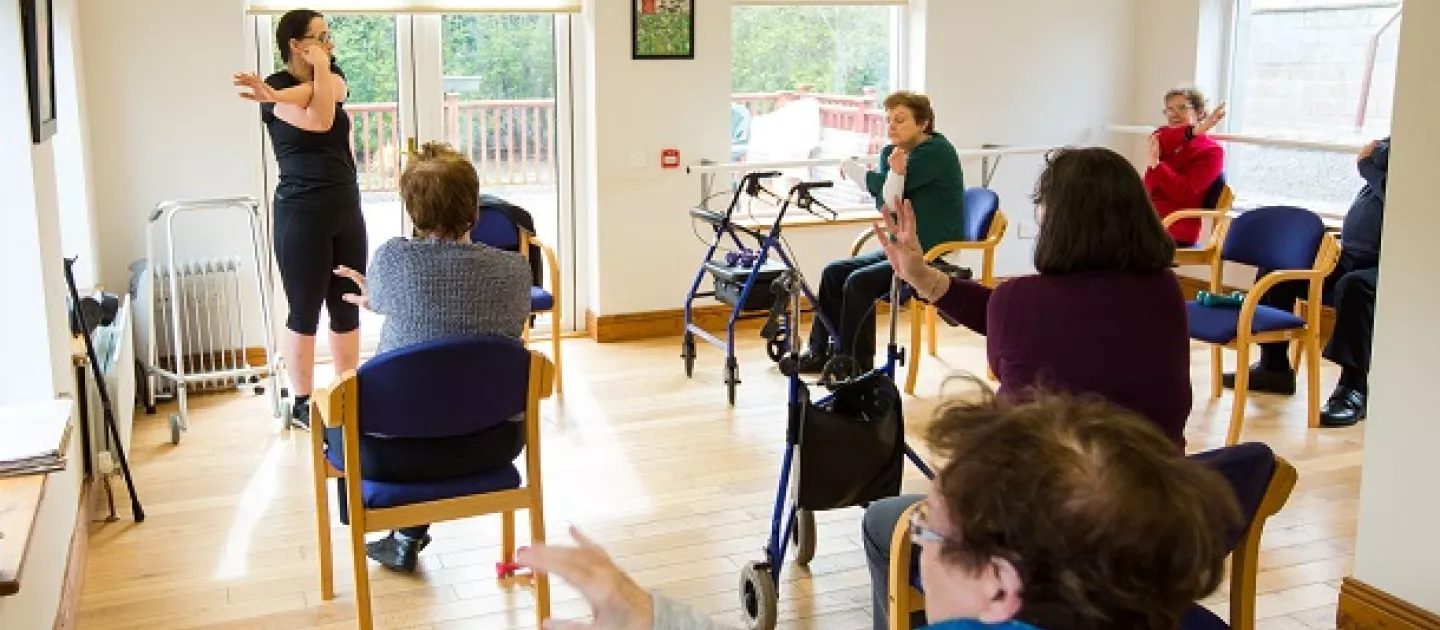Summary of the Impact:
Twenty years ago people living with Multiple Sclerosis (MS) were advised to “take it easy”. Today, there is a growing body of evidence showing that exercise is beneficial for a number of key symptoms like walking and fatigue. The MS research team at University of Limerick is making significant contributions to this U-turn and the team’s research has had direct positive impacts on the health of thousands of people, and on clinical practice and national programmes of care.
Professor Susan Coote explains “Through a randomised, multi-centre control trial conducted in the community rather than a lab, the team found that exercise has a significant positive effect on the impact of MS, particularly on fatigue and walking. This trial showed that exercise actually improved fatigue, challenging the prior belief that exercise could worsen fatigue. Secondly, the research found that it is safe and effective for people with minimal disability to exercise in the community, and that they don’t need a medical model of care. Thirdly, for people with a greater level of disability and who needed walking frames or rollators, this study found that exercise improved their balance.”
The results of the study have fundamentally changed the way MS Ireland delivers their physiotherapy services.
Classes utilising the research finding are now rolled out across all regions and people are benefitting continuously from this evidence-based, effective treatment.
The findings were used by the team to develop a community-based exercise and physiotherapy programme for people living with MS. This programme was rolled-out nationwide by MS Ireland, the sole national organisation providing information, support and advocacy services to the MS community. In 2015, over 2,000 people living with MS took part in either physiotherapy classes, or yoga classes, or worked with individual exercise buddies on this programme.
Public and Patient Involvement (PPI) underpins the work of the MS research team and drives the impact. Prof Coote elaborates: “The questions the research asks are generated by people living with MS and the physiotherapists who are treating them. This ensures that the research is grounded in real needs, and that the findings are translated into positive impacts in everyday life.”
Beyond improving symptoms for individuals, the research has been used by MS Ireland and other bodies to advocate for an improvement in services for people living with MS. The MS research team proactively disseminates its research findings to drive impact by delivering Continuous Professional Development CPD) courses to clinicians, developing online guidelines for physiotherapists and hosting annual information days for health professionals. In the wider neurological community, the team’s research has been cited in the national clinical model of care launched by the Royal College of Physicians and the HSE.
